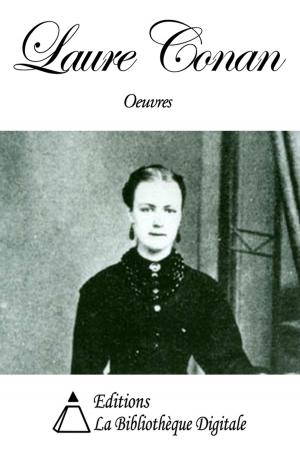Parzival A Knightly Epic Volume 1 (of 2) (English Edition)
Fiction & Literature, Poetry, Continental European, Anthologies| Author: | Wolfram von Eschenback, Jessie L. Weston | ISBN: | 1230000279982 |
| Publisher: | NEW YORK G. E. STECHERT & CO | Publication: | November 14, 2014 |
| Imprint: | Language: | English |
| Author: | Wolfram von Eschenback, Jessie L. Weston |
| ISBN: | 1230000279982 |
| Publisher: | NEW YORK G. E. STECHERT & CO |
| Publication: | November 14, 2014 |
| Imprint: | |
| Language: | English |
Example in this ebook
In presenting, for the first time, to English readers the greatest work of Germany's greatest mediæval poet, a few words of introduction, alike for poem and writer, may not be out of place. The lapse of nearly seven hundred years, and the changes which the centuries have worked, alike in language and in thought, would have naturally operated to render any work unfamiliar, still more so when that work was composed in a foreign tongue; but, indeed, it is only within the present century that the original text of the Parzival has been collated from the MSS. and made accessible, even in its own land, to the general reader. But the interest which is now felt by many in the Arthurian romances, quickened into life doubtless by the genius of the late Poet Laureate, and the fact that the greatest composer of our time, Richard Wagner, has selected this poem as the groundwork of that wonderful drama, which a growing consensus of opinion has hailed as the grandest artistic achievement of this century, seem to indicate that the time has come when the work of Wolfram von Eschenbach may hope to receive, from a wider public than that of his own day, the recognition which it so well deserves.
Of the poet himself we know but little, save from the personal allusions scattered throughout his works; the dates of his birth and death are alike unrecorded, but the frequent notices of contemporary events to be found in his poems enable us to fix with tolerable certainty the period of his literary activity, and to judge approximately the outline of his life. Wolfram's greatest work, the Parzival, was apparently written within the early years of the thirteenth century; he makes constant allusions to events happening, and to works produced, within the first decade of that period; and as his latest work, the Willehalm, left unfinished, mentions as recent the death of the Landgrave Herman of Thuringia, which occurred in 1216, the probability seems to be that the Parzival was written within the first fifteen years of the thirteenth century. Inasmuch, too, as this work bears no traces of immaturity in thought or style, it is probable that the date of the poet's birth cannot be placed much later than 1170.
The name, Wolfram von Eschenbach, points to Eschenbach in Bavaria as in all probability the place of his birth, as it certainly was of his burial. So late as the end of the seventeenth century his tomb, with inscription, was to be seen in the Frauen-kirche of Ober-Eschenbach, and the fact that within a short distance of the town are to be found localities mentioned in his poems, such as Wildberg, Abenberg, Trühending, Wertheim, etc., seems to show that there, too, the life of the poet-knight was spent.
By birth, as Wolfram himself tells us, he belonged to the knightly order (Zum Schildesamt bin Ich geboren), though whether his family was noble or not is a disputed point, in any case Wolfram was a poor man, as the humorous allusions which he makes to his poverty abundantly testify. Yet he does not seem to have led the life of a wandering singer, as did his famous contemporary, Walther von der Vogelweide; if Wolfram journeyed, as he probably did, it was rather in search of knightly adventures, he tells us: 'Durchstreifen muss Der Lande viel, Wer Schildesamt verwalten will,' and though fully conscious of his gift of song, yet he systematically exalts his office of knight above that of poet. The period when Wolfram lived and sang, we cannot say wrote, for by his own confession he could neither read nor write ('I'ne kan decheinen buochstap,' he says in Parzival; and in Willehalm, 'Waz an den buochen steht geschrieben, Des bin Ich kunstelos geblieben'), and his poems must, therefore, have been orally dictated, was one peculiarly fitted to develop his special genius.
To be continue in this ebook...............................................................................................................
Example in this ebook
In presenting, for the first time, to English readers the greatest work of Germany's greatest mediæval poet, a few words of introduction, alike for poem and writer, may not be out of place. The lapse of nearly seven hundred years, and the changes which the centuries have worked, alike in language and in thought, would have naturally operated to render any work unfamiliar, still more so when that work was composed in a foreign tongue; but, indeed, it is only within the present century that the original text of the Parzival has been collated from the MSS. and made accessible, even in its own land, to the general reader. But the interest which is now felt by many in the Arthurian romances, quickened into life doubtless by the genius of the late Poet Laureate, and the fact that the greatest composer of our time, Richard Wagner, has selected this poem as the groundwork of that wonderful drama, which a growing consensus of opinion has hailed as the grandest artistic achievement of this century, seem to indicate that the time has come when the work of Wolfram von Eschenbach may hope to receive, from a wider public than that of his own day, the recognition which it so well deserves.
Of the poet himself we know but little, save from the personal allusions scattered throughout his works; the dates of his birth and death are alike unrecorded, but the frequent notices of contemporary events to be found in his poems enable us to fix with tolerable certainty the period of his literary activity, and to judge approximately the outline of his life. Wolfram's greatest work, the Parzival, was apparently written within the early years of the thirteenth century; he makes constant allusions to events happening, and to works produced, within the first decade of that period; and as his latest work, the Willehalm, left unfinished, mentions as recent the death of the Landgrave Herman of Thuringia, which occurred in 1216, the probability seems to be that the Parzival was written within the first fifteen years of the thirteenth century. Inasmuch, too, as this work bears no traces of immaturity in thought or style, it is probable that the date of the poet's birth cannot be placed much later than 1170.
The name, Wolfram von Eschenbach, points to Eschenbach in Bavaria as in all probability the place of his birth, as it certainly was of his burial. So late as the end of the seventeenth century his tomb, with inscription, was to be seen in the Frauen-kirche of Ober-Eschenbach, and the fact that within a short distance of the town are to be found localities mentioned in his poems, such as Wildberg, Abenberg, Trühending, Wertheim, etc., seems to show that there, too, the life of the poet-knight was spent.
By birth, as Wolfram himself tells us, he belonged to the knightly order (Zum Schildesamt bin Ich geboren), though whether his family was noble or not is a disputed point, in any case Wolfram was a poor man, as the humorous allusions which he makes to his poverty abundantly testify. Yet he does not seem to have led the life of a wandering singer, as did his famous contemporary, Walther von der Vogelweide; if Wolfram journeyed, as he probably did, it was rather in search of knightly adventures, he tells us: 'Durchstreifen muss Der Lande viel, Wer Schildesamt verwalten will,' and though fully conscious of his gift of song, yet he systematically exalts his office of knight above that of poet. The period when Wolfram lived and sang, we cannot say wrote, for by his own confession he could neither read nor write ('I'ne kan decheinen buochstap,' he says in Parzival; and in Willehalm, 'Waz an den buochen steht geschrieben, Des bin Ich kunstelos geblieben'), and his poems must, therefore, have been orally dictated, was one peculiarly fitted to develop his special genius.
To be continue in this ebook...............................................................................................................















